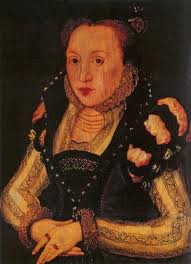 Lady Mary Grey Lady Mary Grey Lady Mary Grey, youngest sister of the tragic Lady Jane was described by a contemporary ambassador as 'small, crookbacked and very ugly.' It is thought by some historians that she was born with the congenital scoliosis of her ancestor Richard III (possibly also suffered by her cousin Edward VI) and there is more than one reference to her diminutive stature, suggesting that she was, aside from her spinal distortion, remarkably small. It would seem that Lady Mary then was a woman with significant disabilities and yet one who inhabited the highest echelons of the court. It was this intriguing figure that inspired my novel Sisters of Treason. My own daughter was paralysed as a baby and for many months we believed she would never walk. Happily she did, but that experience fuelled my desire to give a voice to one of history's invisible women and to articulate something of the kind of life she might have led as both court insider and outsider. One comes across the occasional man with physical challenges in historical fiction: Bucino the dwarf of Sarah Dunant's In the company of the Courtesan, George RR Martin's Tyrian Lannister and polio victim Tomas Ashton of Rosie Allison's The Very Thought of You. All these characters play a pivotal part in their respective narratives, with Ashton as a damaged romantic lead in the mould of Jojo Moyes's quadriplegic hero in Me Before You, Lannister as a key character and Bucino as the protagonist of Dunant's novel. But there is a distinct absence of women with disabilities at the heart of historical fiction. It seems that women are allowed flaws of character, and a prevalence of women with psychological challenges can be found, but bodily flaws seem to be taboo. Looking to the past for literary examples offers little. There is the wheelchair-bound Edith in Stephan Zweig's wonderful Beware of Pity and a number of tragic girls like Beth in Louisa May Alcott's Little Women and Love For Lydia Springs to mind too, who are defined by debilitating illness but it is hard to find empowered women who do not conform to the physical norm. It is for this reason that I chose to take that ambassador's grim appraisal at face value when creating the character of Mary Grey. I didn't want to tone down her disabilities or blur them in any way and felt it was important for her to live on the page as she was in life and allow her, in some small way, speak for all the invisible women of her time. 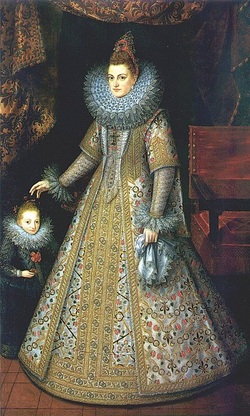 In Early Modern Europe the Medieval belief still held sway, that physical flaws equated to sin, demonstrated effectively in Shakespeare's evil characterisation of that 'lump of foul deformity' Richard III. But Mary wasn't a child hidden away like a shameful secret, on the contrary she was educated alongside her sisters and is thought to have been something of a scholar like her eldest sister Jane. She spent many years at court, a place where dwarfs held special status as royal playthings. But Mary was different: she was full of royal blood herself and so I imagined her position as complex, treated as a kind of pet by dint of her stature but also holding a position in line to the throne. Mary inhabiting a place of ambivalence offered me opportunities to make her party to information others would not, as being infantalised or dehumanised in the eyes of others, her presence was not considered a threat. I show her sitting on the lap of Mary Tudor and overhearing political discussions of great secrecy. Thus she is empowered by her intelligence. But her life is a hard one, as roles for aristocratic women of the period were limited and always involved marriage and the bearing of children, something impossible for Mary. She envisages an endless life lived out in limbo at court where, as the daughter and sister of traitors, she is watched closely. But the most remarkable thing about Mary Grey, which truly demonstrates her extraordinary character is that she refused to be bound by the expectations of her situation and made a break for personal freedom and happiness. A true heroine for all times. 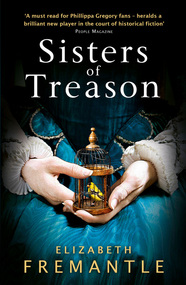 Here's a short extract from Mary Grey's story. In it she is only nine-years-old and reeling from the execution of her beloved sister Jane. I hand my gown to Magdalen, who holds it up, saying with a smirk, 'How does this fit?' She dangles it from the tips of her fingers away from her body. 'This part,' I explain, pointing at the high collar that has been specially tailored to fit my shape, 'goes up around here.' 'Over your hump?' Magdalen says with a snort of laughter. I must not cry. What would my sister Jane have done, I ask myself. Be stoic, Mouse, she would have said. Let no one see what you are truly feeling. 'I don't know why the Queen would want such a creature at her wedding,' Magdalen whispers to Cousin Margaret, not so quiet that I can't hear. I fear I will cry and make things worse, so I think up a picture of Jane. I remember her saying once: God has chosen to make you a certain way and it cannot be without reason. In his eyes you are perfect – in mine too. But I know I am not perfect; I am so hunched about the shoulders and crooked at the spine, I look as if I have been hung by the scruff on a hook for too long. And I am small as an infant of five, despite being almost twice that age. Besides it is what is in here that matters; in my mind's eye Jane presses a fist to her heart. Sisters of Treason will be published on 22nd May ElizabethFremantle.com
2 Comments
|
Subscribe to Elizabeth's quarterly newsletter below:Archives
June 2018
Categories
All
|
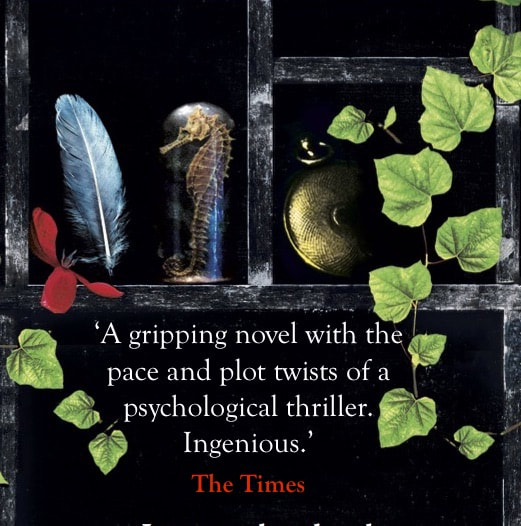
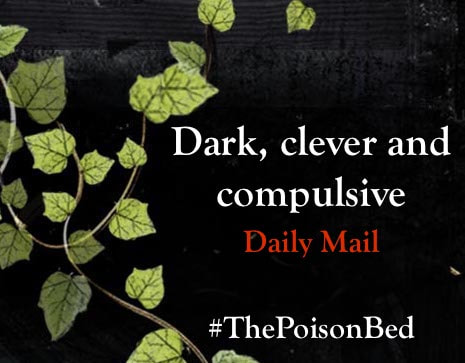
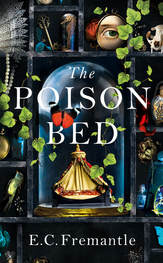
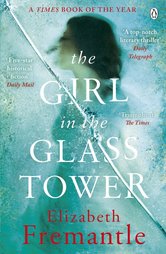
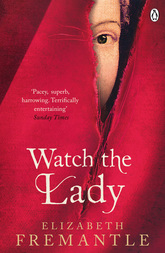
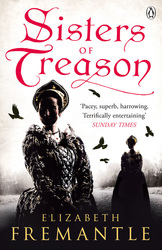
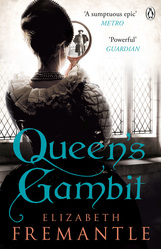
 RSS Feed
RSS Feed
